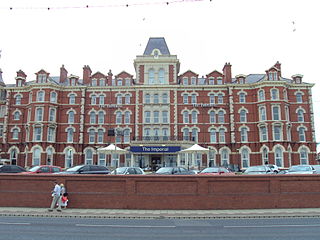
A board of directors is an executive committee that jointly supervises the activities of an organization, which can be either a for-profit or a nonprofit organization such as a business, nonprofit organization, or a government agency.

Salomon v A Salomon & Co Ltd[1896] UKHL 1, [1897] AC 22 is a landmark UK company law case. The effect of the House of Lords' unanimous ruling was to uphold firmly the doctrine of corporate personality, as set out in the Companies Act 1862, so that creditors of an insolvent company could not sue the company's shareholders for payment of outstanding debts.
Re D’Jan of London Ltd [1994] 1 BCLC 561 is a leading English company law case, concerning a director's duty of care and skill, whose main precedent is now codified under s 174 of the Companies Act 2006. The case was decided under the older Companies Act 1985.

Hutton v West Cork Railway Co (1883) 23 Ch D 654 is a UK company law case, which concerns the limits of a director's discretion to spend company funds for the benefit of non-shareholders. It was decided in relation to employees in the context of a company's insolvency proceedings.
O'Neill v Phillips[1999] UKHL 24 is a UK company law case on an action for unfair prejudice under s.459 Companies Act 1985. It is the only case thus far in the House of Lords on the provision and it deals with the concept of members of a business having their "legitimate expectations" disappointed.

Ebrahimi v Westbourne Galleries Ltd [1973] AC 360 is a United Kingdom company law case on the rights of minority shareholders. The case was decided in the House of Lords.

Bushell v Faith [1970] AC 1099 is a UK company law case, concerning the possibility of weighting votes, and the relationship to section 184 of Companies Act 1948 which mandates that directors may be removed from a board by ordinary resolution.

Southern Foundries (1926) Ltd v Shirlaw [1940] AC 701 is an important English contract law and company law case. In the field of contracts it is well known for MacKinnon LJ's decision in the Court of Appeal, where he put forth the "officious bystander" formulation for determining what terms should be implied into agreements by the courts. In the field of company law, it is known primarily to stand for the principle that damages may be sought for breach of contract by a director even though a contract may de facto constrain the exercise of powers to sack people found in the company's constitution.

Attorney General of Belize v Belize Telecom Ltd[2009] UKPC 10 is a judicial decision of the Privy Council in relation to contract law, company law and constitutional law. It concerns the correct method for interpretation and implication of terms into a company's articles of association.

Pender v Lushington (1877) 6 Ch D 70 is a leading case in UK company law, which confirms that a company member's right to vote may not be interfered with, because it is a right of property. Furthermore, any interference leads to a personal right of a member to sue in his own name to enforce his right. As Lord Jessel MR put it, a member:
has a right to say, "Whether I vote in the majority or minority, you shall record my vote, as that is a right of property belonging to my interest in this company, and if you refuse to record my vote I will institute legal proceedings against you to compel you."

Guinness plc v Saunders [1989] UKHL 2 is a UK company law case, regarding the power of the company to pay directors. It required that whatever rules exist for payment in the company's articles, they must be strictly observed.

Bishopsgate Investment Management Ltd v Maxwell [1993] BCLC 814 is a UK company law case concerning a director's duty to act for proper purposes of the company. This case is an example of what would now be Companies Act 2006, section 171.

Automatic Self-Cleansing Filter Syndicate Co Ltd v Cuninghame [1906] 2 Ch 34 is a UK company law case, which concerns the enforceability of provisions in a company's constitution.

Isle of Wight Railway Company v Tahourdin (1884) LR 25 Ch D 320 is a UK company law case on removing directors under the old Companies Clauses Act 1845. In the modern Companies Act 2006, section 168 allows shareholders to remove of directors by a majority vote on reasonable notice, regardless of what the company constitution says. Before 1945, removal of directors depended on the constitution, however this case contains some useful guidance on how to properly construe the provisions of a constitution.

Imperial Hydropathic Hotel Co, Blackpool v Hampson (1883) 23 Ch D 1 is a UK company law case, concerning the interpretation of a company's articles of association. On the specific facts it has been superseded by the Companies Act 2006 section 168, which allows a director to be removed through an ordinary majority resolution of the general meeting.

Rolled Steel Products (Holdings) Ltd v British Steel Corp [1986] Ch 246 is a UK company law case, concerning the enforceability of obligations against a company. The case was one of the last significant cases on ultra vires under English company law before the provisions abrogating that doctrine in the Companies Act 1985 became effective.

Re City Equitable Fire Insurance Co [1925] Ch 407 is a UK company law case concerning directors' duties, and in particular the duty of care. It is no longer good law, as it stipulated that a "subjective" standard of competence applied. Now under Companies Act 2006 section 174, and given the development of the common law in Re D'Jan of London Ltd, directors owe an objective standard of care based on what should reasonably be expected from someone in their position.

Re Yenidje Tobacco Co Ltd [1916] 2 Ch 426 is a UK company law and UK insolvency law case concerning just and equitable winding up.

Oldham v Kyrris[2003] EWCA Civ 1506 is a UK insolvency law case concerning the administration procedure when a company is unable to repay its debts.
National Labor Relations Board v. Noel Canning, 573 U.S. 513 (2014), was a United States Supreme Court case in which the Court unanimously ruled that the President of the United States cannot use his authority under the Recess Appointment Clause of the United States Constitution to appoint public officials unless the United States Senate is in recess and not able to transact Senate business. The Court held that the clause allows the president to make appointments during both intra-session and inter-session recesses but only if the recess is of sufficient length, and if the Senate is actually unavailable for deliberation, thereby limiting future recess appointments. The Court also ruled that any office vacancy can be filled during the recess, regardless of when it arose. The case arose out of President Barack Obama's appointments of Sharon Block, Richard Griffin, and Terence Flynn to the National Labor Relations Board and Richard Cordray as the director of the Consumer Financial Protection Bureau.













